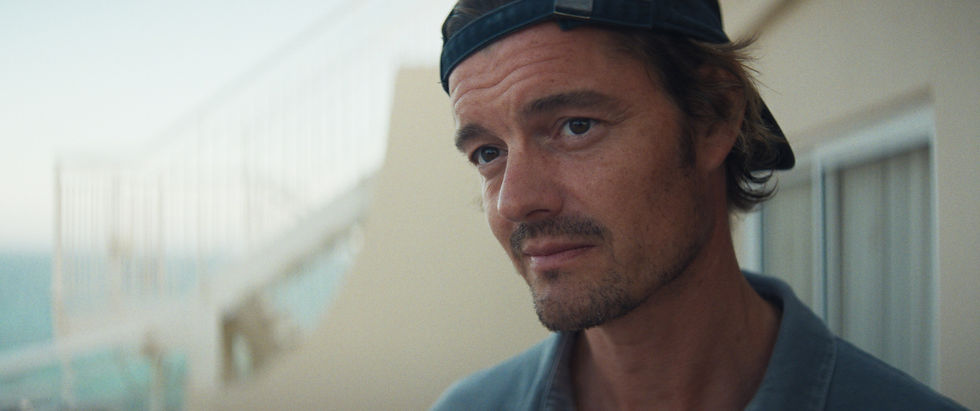LITTLE JOE
- K. Bondar & Susan Gray
- Feb 29, 2020
- 4 min read
Updated: Apr 6, 2020
DIRECTOR JESSICA HAUSNER
WRITER JESSICA HAUSNER & GERARDINE BAJARD
CAST EMILY BEEHCAM, BEN WISHAW, KERRY FOX, KIT CONNOR, DAVID WILMOT, PHENIX BROSSARD
IN CINEMAS MARCH 2020
REVIEW by SUSAN GRAY
Do you want to be right, or do you want to be happy?’ is a familiar payoff line from daytime chatshow hosts, to wrap us some tit for tat tale of family woe. In Jessica Hausner’s Little Joe, the question pivots to ‘Do you want to be happy, or do you want to be you?’
Speaking at the BFI on the film’s opening night, Hausner is explicit about wanting to unsettle the viewer. The Austrian director enjoys working within genre because ‘genre films repeat their truth again and again.’ In Little Joe, Hausner takes the film’s central truth, that we never really know what somebody else is feeling, and bends it every which way.
For a low budget ($7 million), tightly cast film, Little Joe is a many splendoured thing. Within the story of Alice, the single mother plant breeder, who creates flower with a happiness inducing scent, luminously played by Emily Beecham, there’s also an exploration of motherhood, tweenagers, gender roles and office politics. All this is played out against a backdrop of an English ‘everycity’ with peeling Georgian conversions and Victorian schools, wild hill country, and a high-tech greenhouse, full of door codes, protective gloves and pervasive surveillance.
Even without the mind altering plant, who Alice names "Little Joe" after her son, the biotech greenhouse where Alice works is a sinister place. All the surfaces are hard, and bonhomie false, where co-workers are scapegoated, favours go unreturned, and commercial targets are pursued with violence and death. In this 9-5 hell, Ben Whishaw is magnificent as Alice’s by turns bashful, then sociopathic, assistant. The standout supporting performance is Kerry Fox as Bella, the greenhouse’s bungling Cassandra, with a mental health backstory deployed against her in stage whispers.
The apartment Alice shares with 12 year old Joe, sensitively performed by Kit Connor, is similarly a place of flat planes, shadows and endless corners. Only in Alice’s therapist’s office is there pattern: a sanctuary of liberty print armchairs, and luxurious floral print blouses worn by Lindsay Duncan. Despite the contrasting decor, the therapist played by Duncan’s attempts to delve into the truth, turns out to be as arid as all the other characters.
Little Joe uses the conventions of sci-fi and horror to make us reflect on what do we expect of the other people in our lives? And what do we truly want? Not a super smart red flowering plant, that’s for sure.

REVIEW by KATHLEEN BONDAR
Having thought Little Joe was an allegory on the danger of genetically modified produce or viral warfare, it transpires, after an insightful evening with the director Jessica Hausner (in conversation with Geoff Andrew at the NFT February 2020) that Little Joe was inspired by the Invasion of the Body Snatchers, 1956. In this iconic sci-fi movie, humans are mind-washed by aliens. The hook for Little Joe is that we present a surface persona which conceals the person. “We all pretend very much,” as Hausner explained on the evening of her retrospective at the BFI.
In Little Joe, Alice, a biologist played by Emily Beecham (who won Best Actress Cannes 2019 for the part), cultivates plants for a commercial laboratory. Her prize creation is a red flower which produces a seductive scent. She names the plant “Little Joe” after her son.
However, Little Joe acts like a psychological virus infecting those that inhale the pollen to protect the species at any cost. Alice’s colleague Bella (Kerry Fox) discovers to her detriment Little Joe’s sinister qualities when her dog turns feral under its spell. She tries to warn Alice, but soon everyone, her son Joe (Kit Connor), her admirer Chris (Ben Wishaw) and her colleagues are infected.
There is a pervading eerie quality to the film. The acting is stilted; everyone is cautious. Alice is non-plussed by Chris’ advances. Chris smiles fixedly as he tells Alice he loves her. Joe barely recognises his mother once he is infected. Bella makes a fuss about the plant, but she is observed guardedly. The non-diegetic music, an inharmonious Japanese score by Teiji Ito, adds to a sense of unease. The interiors – the high-tech laboratory and Alice’s sparsely furnished house – are clinical. The external location is barren moorland.
Hausner’s filmography points to a fascination with edgy subjects and her interest in destabilising the viewer’s perceptions of character. She points to the experimental filmmaker Maya Deren (Meshes in the Afternoon 1943) as an influence. In Lovely Rita 2002 the seemingly normal teenager is a killer. In Lourdes 2009 a woman with multiple sclerosis appears to be healed. In Amour Fou 2014, the woman who enters into a suicide pact conceals her true reasons. Despite these morbid subjects, Hausner insists there is humour in her films – albeit dark humour to do with the preposterous.
Little Joe succeeds in disrupting first impressions but doesn’t follow through on the timely issue of man-made pollination. The infectious qualities of the plant whilst preferably avoided are not deeply disturbing. The detached acting keeps the viewer in observational mode and to some degree uninvolved. This being Hausner’s first English language film the dialogue is minimal and lacks the fluidity of colloquialism. However, Little Joe is a remarkable film in many ways, skillfully enacted by a distinguished cast and certainly gives rise to reflection on “all is not what it seems”.
@BFI
@LittleJoeFilm


